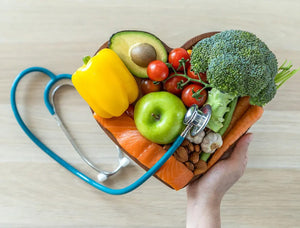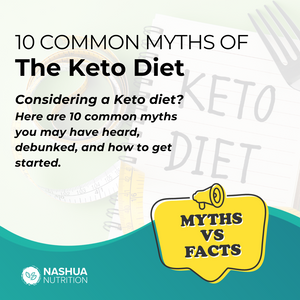Breaking the Cycle of Emotional Eating

Human emotions can trigger a wide variety of responses, and different people handle different emotions in a variety of ways. While some people use exercise or call a friend to deal with anger or sadness, others may cope by turning to comfort foods. Breaking the cycle of emotional eating can be a difficult task—however, it’s not an impossible one thanks to tips below and including control snacks into your diet. Here are three tips to help break the habit of emotional eating.
Recognize the Signs
One of the most important steps to curbing emotional eating is to recognize when you’re doing it. First, it’s important to acknowledge when you’re feeling emotionally overwhelmed. Second, recognize your impulse to eat while sad, angry, or depressed. In these instances, your mind is seeking immediate comfort through the pleasure centers triggered by certain foods. No one eats broccoli for comfort; foods high in sugars, salts, and/or fats are typically what’s craved. Last, after recognizing your impulse stop yourself; use your willpower to walk away.
Eliminate Access to Comfort Foods
One of the best ways to stop emotional eating is to curb your access to your go-to comfort foods. True, you can always pop over to a store and purchase them, but if that chocolate or bag of chips isn’t in your desk drawer or pantry, then you’re less likely to eat them. And don’t keep emergency change in your desk drawer for the vending machine. Really evaluate your habits and set roadblocks in place to help remind yourself to slow down and evaluate why you want to eat.
Adopt a Healthy Coping Mechanism
Emotional eating is an unhealthy coping mechanism triggered by stressful situations. The best way to break this cycle is to replace it with a healthy coping mechanism. Studies show that exercising—even a short 15-20 minute walk—can help both the brain and body cope with stressors. Talking about the stress with a friend or professional is another great option. Journaling, writing about one’s feelings, can also be an effective way to deal with emotions. Use one or a combination of these strategies to replace the immediate desire to eat unhealthy foods.
Changing for the better can be a difficult journey, especially when our brains are wired to enjoy the foods that are the least healthy for us. And as you begin this journey, keep in mind that setbacks are bound to happen. You may break into a secret stash of chocolate or indulge in a double burger after a particularly stressful day. Simply forgive yourself and move ahead. Over time you’ll be able to adopt healthier coping strategies to deal with stressful situations.
- Nashua Nutrition Admin









